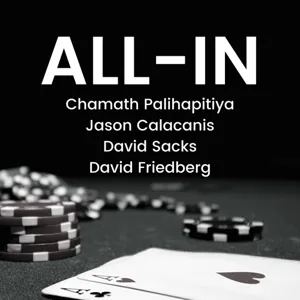PodcastsAll-In with Chamath, Jason, Sacks & FriedbergAll-In Summit: In conversation with Graham Allison

All-In Summit: In conversation with Graham Allison
All-In with Chamath, Jason, Sacks & FriedbergTue Sep 19 2023
Graham Allison's Background:
- Founding dean of Harvard's John F. Kennedy School of Government
- Professor of government with a focus on U.S. national security and defense policy
- Former Assistant Secretary of Defense for Policy & Plans (1993-1994)
- Coordinated strategy and policy towards the states of the former Soviet Union
Thucydides' Trap:
- The trap is triggered when a rapidly rising power threatens to displace a ruling power, often leading to war
- Examples include the Peloponnesian War, World War I, and the War of Spanish Succession
- Graham Allison argues that the US-China relationship is currently in this trap
The Rise of China:
- China is not just another great power but will become the biggest power in history
- The US has been the architect and guardian of the international order, which China aims to challenge
- Historically, 12 out of 16 cases of such rivalries have resulted in war
Strategic Imagination:
- Wars are not inevitable but structurally likely in Thucydides' Trap situations
- Strategic imagination can bend otherwise negative trends or physics of the situation
- The Cold War between the US and Soviet Union came close to war multiple times but ultimately avoided it due to strategic imagination
India's Role:
- India could potentially be a serious rival to China or remain as it has been historically – a country that never fully rises
- India has internal complexities, including religious tensions and governance challenges under Modi
US Foreign Policy Establishment:
- Post 9/11 reactions led to questionable decisions like invading Iraq and staying in Afghanistan for 20 years
- There was little debate within the policy elite during this period, resulting in bellicose rhetoric rather than thoughtful discussions
Potential Conflict with China:
- The US is not equipped for a hot conflict with China, impacting how China strategizes its next moves
- The US defense industrial complex could be more efficient and effective with proper reform
Cooperation vs Competition:
- There are incentives for both cooperation and competition between the US and China
- Survival, shared challenges like climate change, and interconnected financial systems provide reasons to cooperate
- More strategic imagination is needed to find ways to cooperate rather than defaulting to posturing or war
